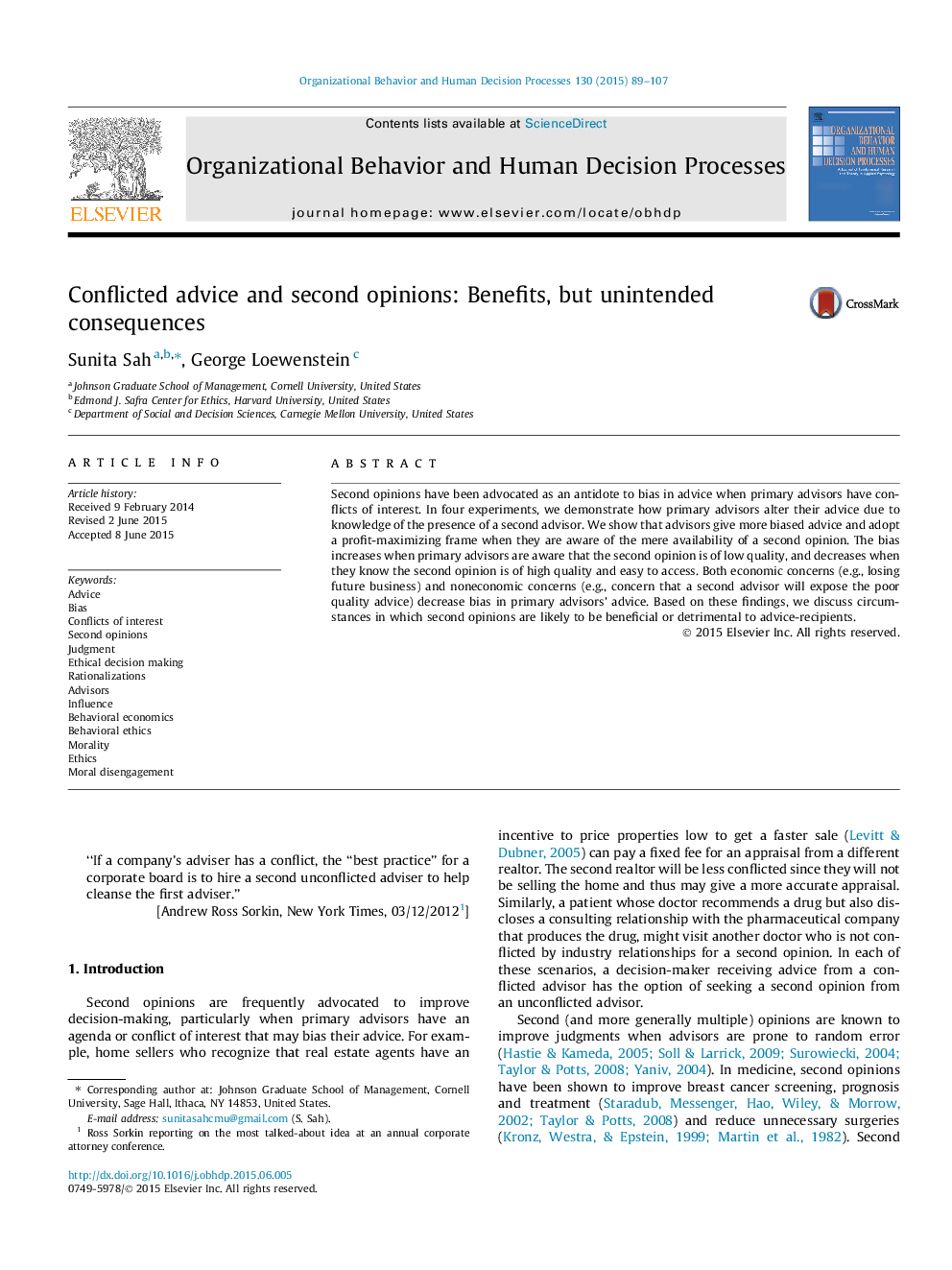| Article ID | Journal | Published Year | Pages | File Type |
|---|---|---|---|---|
| 888499 | Organizational Behavior and Human Decision Processes | 2015 | 19 Pages |
Abstract
Second opinions have been advocated as an antidote to bias in advice when primary advisors have conflicts of interest. In four experiments, we demonstrate how primary advisors alter their advice due to knowledge of the presence of a second advisor. We show that advisors give more biased advice and adopt a profit-maximizing frame when they are aware of the mere availability of a second opinion. The bias increases when primary advisors are aware that the second opinion is of low quality, and decreases when they know the second opinion is of high quality and easy to access. Both economic concerns (e.g., losing future business) and noneconomic concerns (e.g., concern that a second advisor will expose the poor quality advice) decrease bias in primary advisors' advice. Based on these findings, we discuss circumstances in which second opinions are likely to be beneficial or detrimental to advice-recipients.
Keywords
Related Topics
Social Sciences and Humanities
Business, Management and Accounting
Marketing
Authors
Sunita Sah, George Loewenstein,
